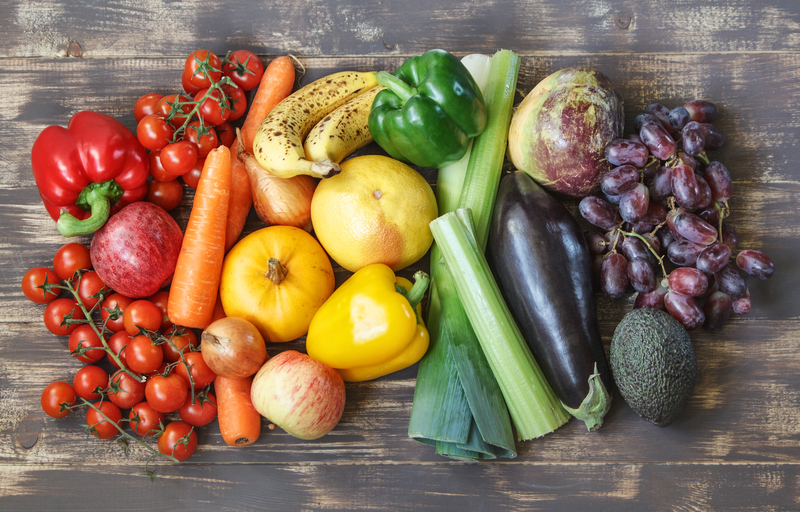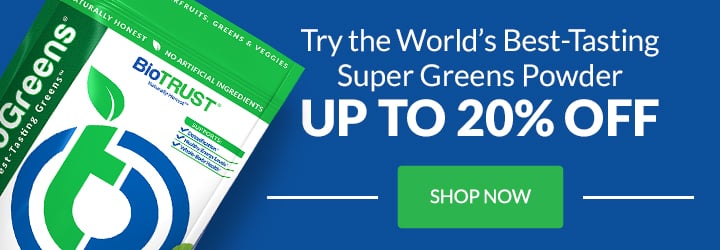The Truth About The High Alkaline Diet: Does It REALLY Work?

It seems like every six months or so, the “high alkaline diet” is all the rage, garnering the headlines after being endorsed by a celebrity or professional athlete. This year alone, we’ve heard how a high alkaline diet changed Kelly Ripa’s life, and in Tom Brady’s recent book, he reveals that his diet emphasizing alkalizing foods has helped him thrive.
What is the high alkaline diet? Is it healthful or just a bunch of hype? What are some examples of alkalizing foods? And should you include more of them in your diet? Let’s answer these questions and more to find out if a high alkaline diet is all it’s cracked up to be.
What is the High Alkaline Diet?
The premise behind an alkaline diet is that diet composition impacts acid-base regulation and the pH balance in the body, and a high dietary acid load may lead to a variety of health problems and common complaints:
- Fatigue
- Brain fog
- Sensitivity to the cold
- Weakened immune system
- Decreased overall health
- Reduced feelings of well-being
- Difficulty with weight management
- Reduced bone strength
- Muscle loss
- Decreased stamina
- Impaired exercise performance
- Compromised hair, skin, and nail strength
Foods are typically classified as “acidic” or “alkaline” based on a measurement called potential renal acid load, or PRAL for short, which quantifies the effect of diet on systemic acid load.1,2 Research shows that PRAL, which is reported as mEq/day, is highly correlated with net acid excretion in the urine.1,2 Although it’s often disputed by critics of the alkaline diet theory, research has shown that urinary pH is a reliable indicator of dietary acid-base load via fruit, vegetable, and meat intakes.3
The primary alkalizing nutrients that reduce dietary acid load are potassium, magnesium, and calcium. On the other hand, protein and phosphorus are considered the major determinants increasing dietary acid load. Along those lines, common foods that have an acidifying effect include:
- Cheese and other dairy products
- Meat
- Eggs
- Grains and grain-based products
- Processed foods with added sugars and sodium
On the other hand, fruits and vegetables are the epitome of high alkaline diet foods. Other alkalizing foods include:
- Potatoes
- Red and white wine
- Coffee
- Mineral water

Basically, a high alkaline diet is one that emphasizes fruit and vegetable consumption while subsequently reducing intake of processed foods. It’s pretty much the opposite of the typical Western-style diet (also called the Standard American Diet, or SAD for short), which is hallmarked by a high intake of acidic or acidifying elements and not nearly enough alkalizing fruits and vegetables.5,6
While it shouldn’t come as a huge surprise, the average dietary acid load of the typical Western-style diet is about 50 – 75 mEq/day compared to a nearly neutral acid load among plant-based eaters.4
And while it’s difficult to tease out individual culprits with this poor style of eating, some have speculated that the high acid load associated with SAD may directly contribute to the cornucopia of negative outcomes listed above.7–9 Interestingly, some speculate that this may be tied to the stress hormone cortisol, which is elevated by an acid-heavy American diet. On the other hand, an alkaline diet may neutralize both dietary acid load and excess cortisol production.10
The Truth About the Alkaline Diet
When it comes to the high alkaline diet, there’s a LOT of hype out there. And it’s easy to be swayed by it, especially when it’s espoused by celebrities and professional athletes. However, the research on the benefits of low dietary acid loads is inconsistent. Certainly, it doesn’t strongly support its often-touted curative effects. Having said that, there’s no question that consuming more alkalizing foods may be extremely beneficial for overall health and longevity.11,12
A more alkaline diet, which includes more fruits and vegetables, may become even more important as we get older, considering that kidney function tends to decline with age. Along these lines, research suggests older folks may be even more sensitive to added alkalizing foods to their diets. This may help preserve calorie-burning lean muscle, which is tremendously important for healthy aging.13
Yet, considering the importance of higher protein intakes for healthy aging, I’d advise against lowering protein even though protein-rich foods may have a slight acidifying effect. In fact, research shows that adding fruits and vegetables to a higher protein intake reduced the net acid load by 55%.14
There Must Be An Easier Way…
While I’m all for eating more fruits and vegetables, there may be a more convenient option to alkalize the body and reduce dietary acid load: greens and superfood supplements, such as my personal favorite, MetaboGreens 45X. Considering these plant-based supplements contain an array of powdered extracts from fruits, vegetables, herbs, and spices, it shouldn’t be all that surprising that pilot studies have shown that supplementation with them can increase urinary pH and reduce net acid load.7,8
Of course, supplements like these are not a replacement for healthy eating habits, and while I recommend using MetaboGreens 45X daily, it’s particularly useful at times when you can’t add fruits and vegetables to a meal or when you’re traveling. Again, it’s best to use a supplement like MetaboGreens 45X in combination with an overall healthy diet, which is rich in fruits and vegetables.







